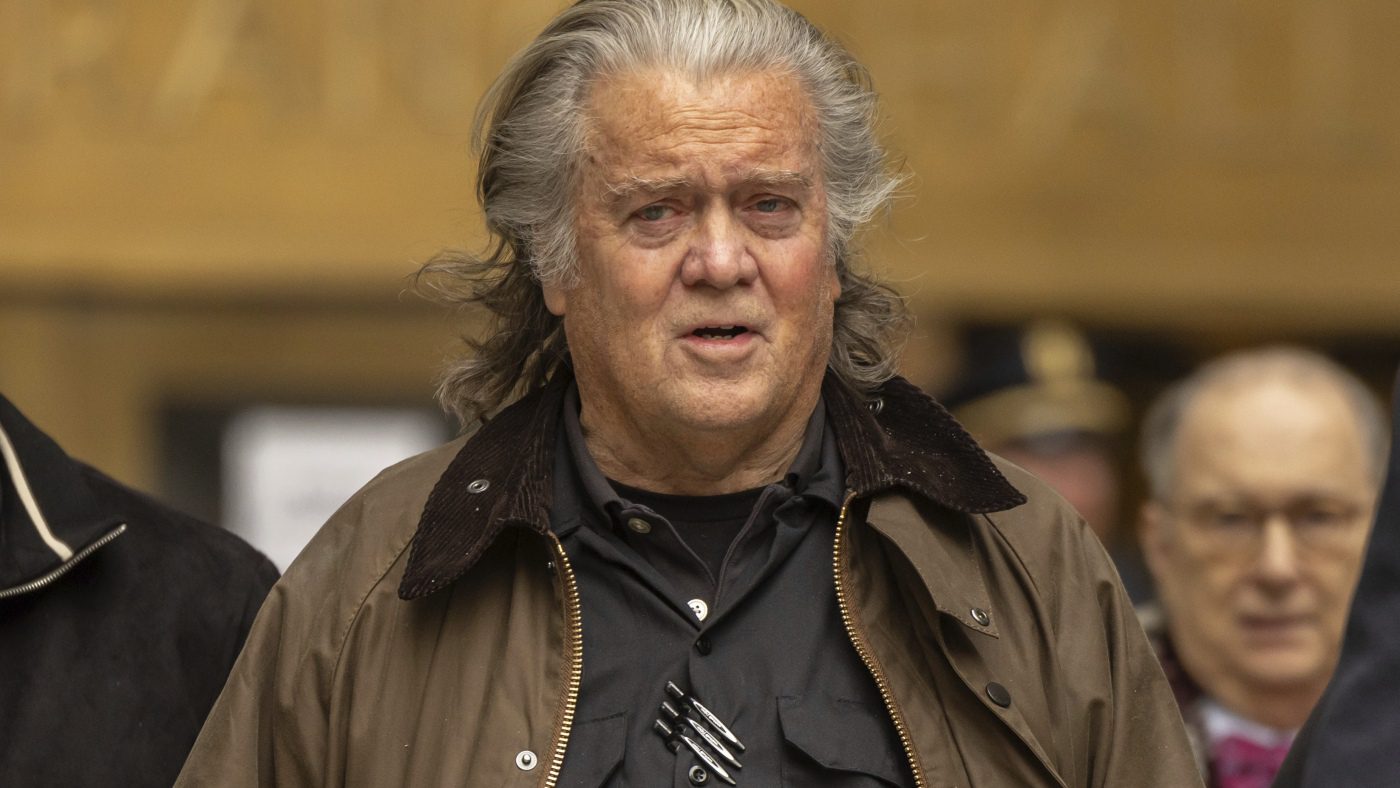
Steve Bannon’s Guilty Plea: A Summary of the Court Case and Implications

Image Credit: Yuki Iwamura/AP
On February 11, 2025, Steve Bannon, a prominent conservative strategist and ally of former President Donald Trump, pleaded guilty to defrauding supporters of a private campaign aimed at financing the construction of a wall along the U.S.-Mexico border. Bannon characterized the legal actions against him as politically motivated.
As part of a plea agreement, he avoided imprisonment and expressed a buoyant demeanor upon leaving the courtroom, claiming he felt "like a million bucks." The guilty plea was made in a Manhattan state court where he admitted to one felony charge of scheming to defraud. This case connected to We Build the Wall, a nonprofit organization Bannon previously indicated may have operated as a scam.
To comply with the terms of the agreement, Bannon, 71, must maintain good behavior for the next three years, failing which he might face criminal repercussions, including potential jail time. Additionally, he is barred from raising funds or holding any officer positions within charities in New York, and he is prohibited from using, selling, or possessing any information obtained from contributors to the wall project.
Initially set for trial on March 4, Bannon’s team, led by attorney Arthur Aidala, assessed the likelihood of a favorable outcome with a jury in a predominantly Democratic Manhattan and chose to accept the plea. Under the terms, prosecutors dropped more severe charges of money laundering and conspiracy.
Bannon’s plea came shortly after U.S. Attorney General Pam Bondi instructed the Justice Department to investigate what Trump described as the "weaponization of prosecutorial power." Outside the courthouse, Bannon urged for criminal inquiries into the Manhattan District Attorney, Alvin Bragg, and New York Attorney General Letitia James, alleging misconduct and overreach by these officials.
Bragg’s office did not respond promptly to Bannon’s accusations. He became embroiled in this case after Trump granted him a federal pardon for different charges shortly before leaving office in January 2021; however, presidential pardons only shield against federal crimes, leaving Bannon vulnerable to state charges.
The legal proceedings revealed that Bannon misled donors, including those from New York, by promising that all contributions to We Build the Wall would directly fund the border barrier. Prosecutors argued that the funds were instead funneled for personal gain to Bannon and his associates.
Launched in 2018 following Bannon’s dismissal as Trump’s chief strategist, the campaign quickly garnered over $20 million and successfully erected some miles of fencing. However, it faced challenges regarding compliance with federal regulations, which ultimately prompted scrutiny and critique from Trump himself, the Republican figurehead the initiative was created to support.
Bragg stated, "This resolution meets our primary goal: to safeguard New York’s charitable landscape and protect against fraudulent activities." He reaffirmed New York’s commitment to rooting out fraud across various sectors.
Though Bannon appeared poised to fight the charges, his strategy shifted as the case evolved. He engaged new legal representation and developed a defensive game plan after the presiding judge permitted the introduction of pertinent evidence, including an email where Bannon expressed doubts about the legitimacy of the fundraising efforts.
Previously, Bannon had claimed "Isn’t this a scam? You can’t build the wall for this much money," highlighting his concerns that donor contributions were being misallocated instead of used for the intended purpose.
At one point, Bannon’s attorneys sought to dismiss the case, alleging it represented an unconstitutional targeting of him by prosecutors. However, the upcoming ruling became irrelevant following the plea arrangement.
Two accomplices, Brian Kolfage and Andrew Badolato, have already been sentenced to prison for their roles in the We Build the Wall campaign. Another defendant, Timothy Shea, was convicted and also sentenced to prison.
In a separate incident last year, Bannon served four months in prison for defying a subpoena linked to the congressional inquiry into the January 6, 2021, Capitol attack. He was released in October.
As further developments unfold, the ramifications of Bannon’s guilty plea continue to resonate within the political and legal landscape.









